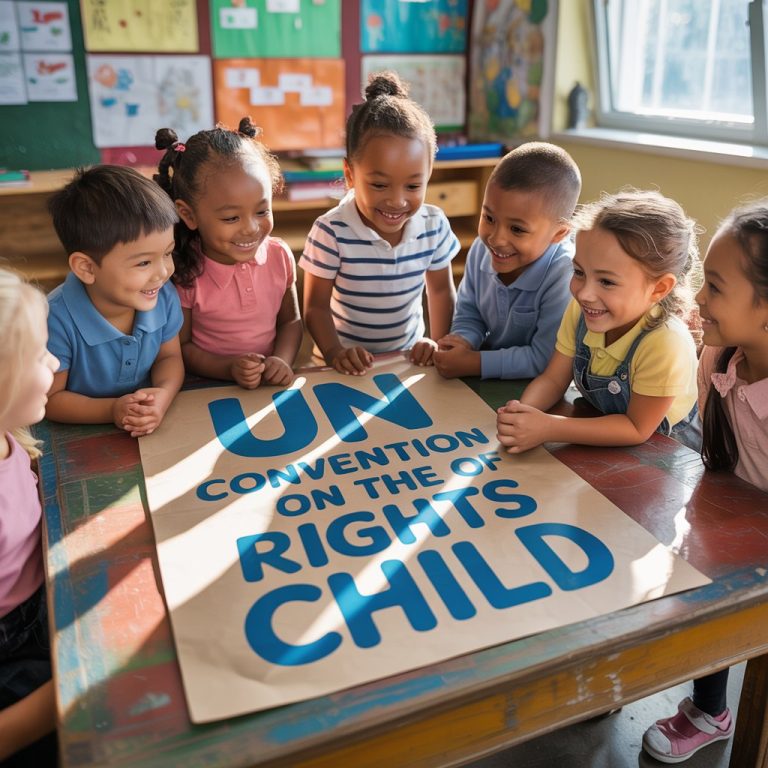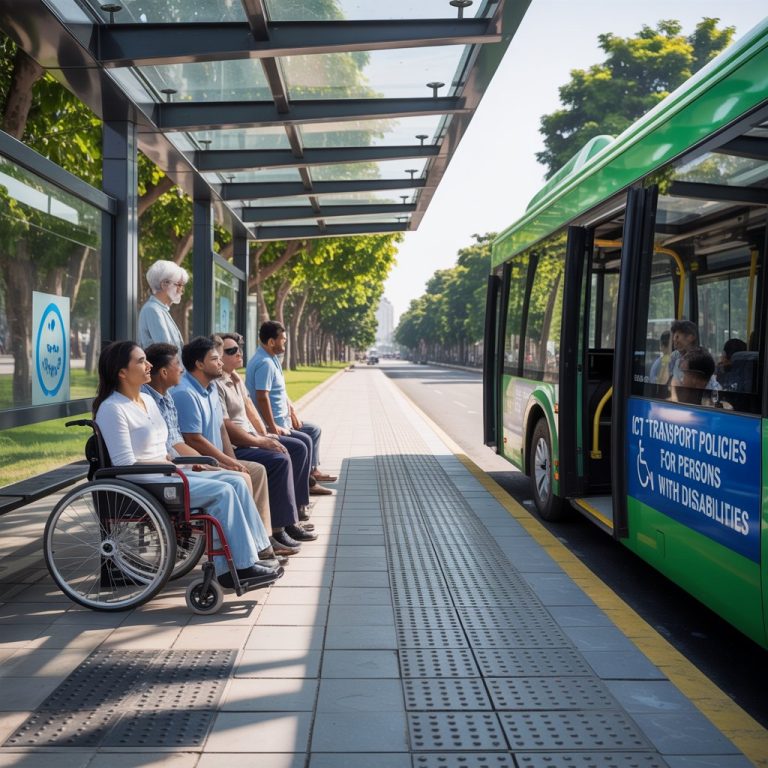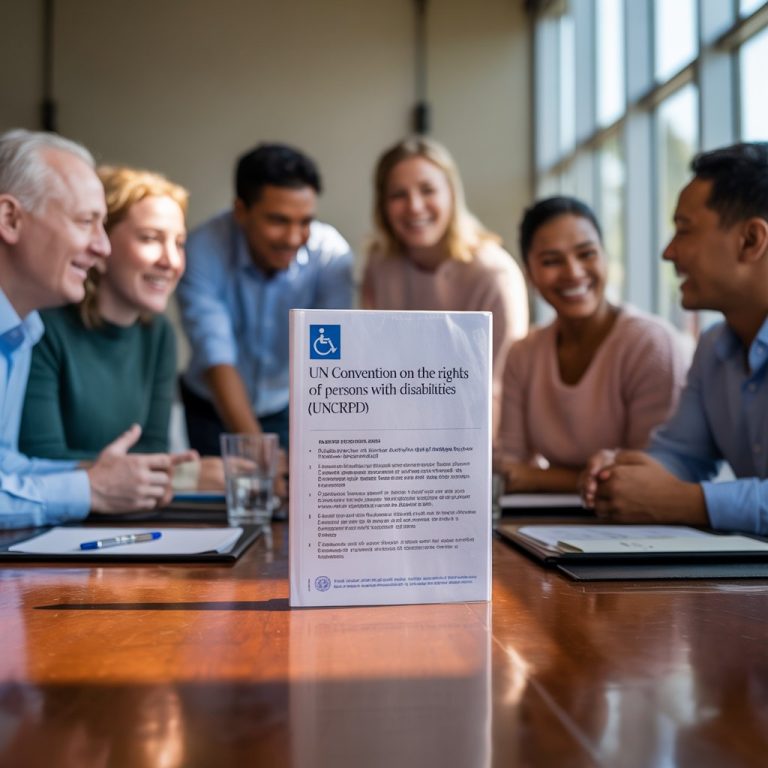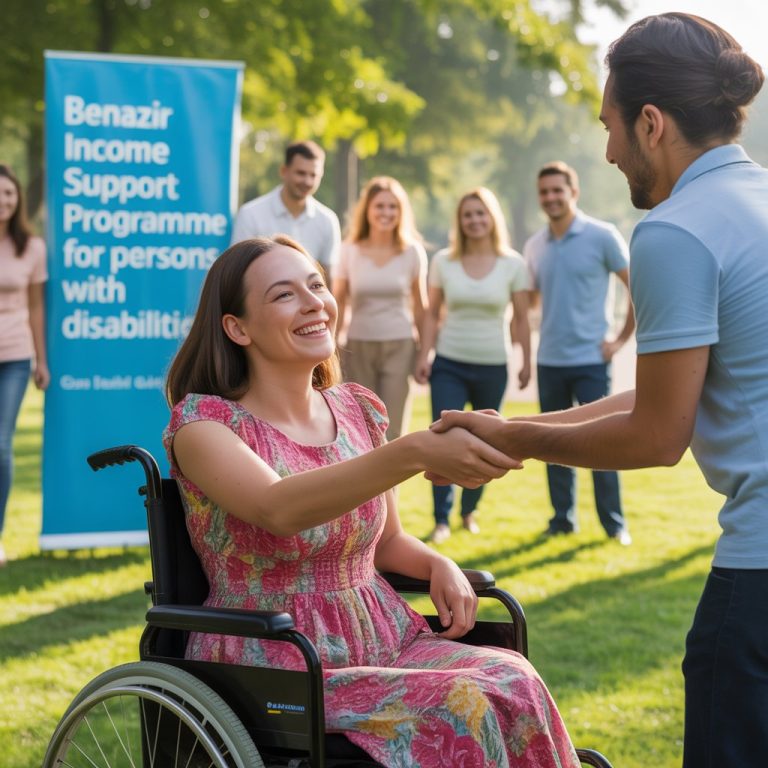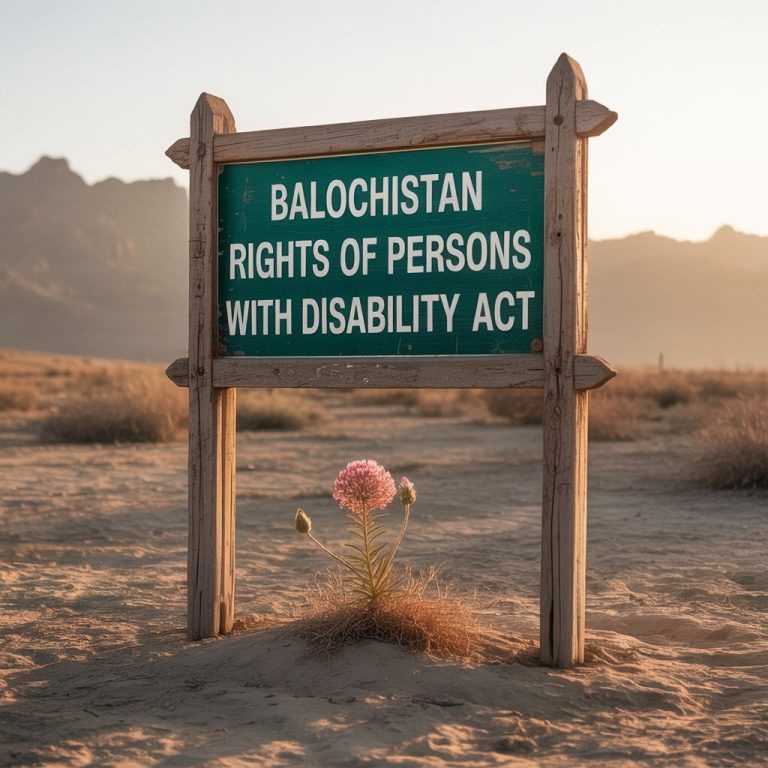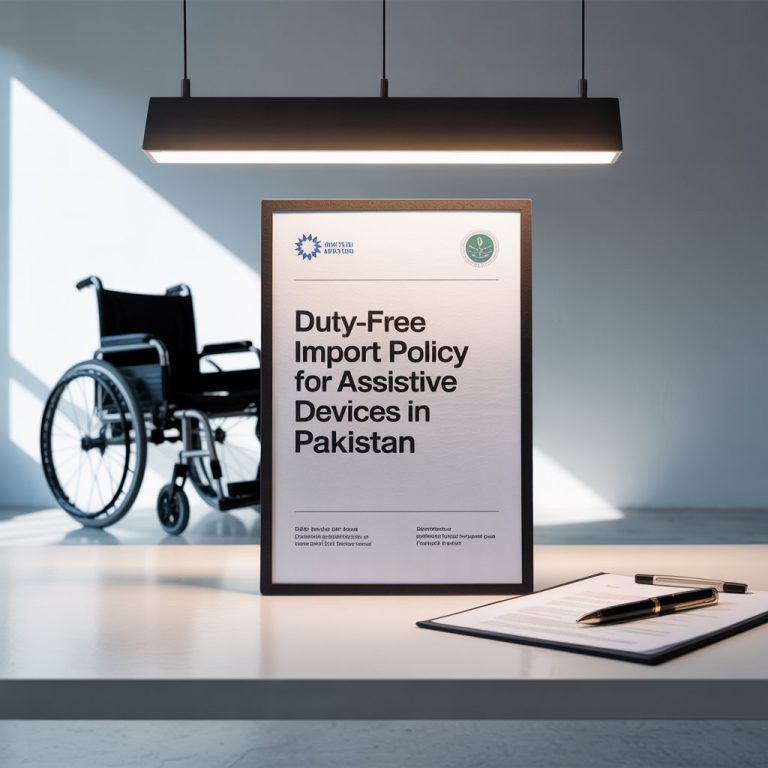Ehsaas Program for Special Persons in Pakistan
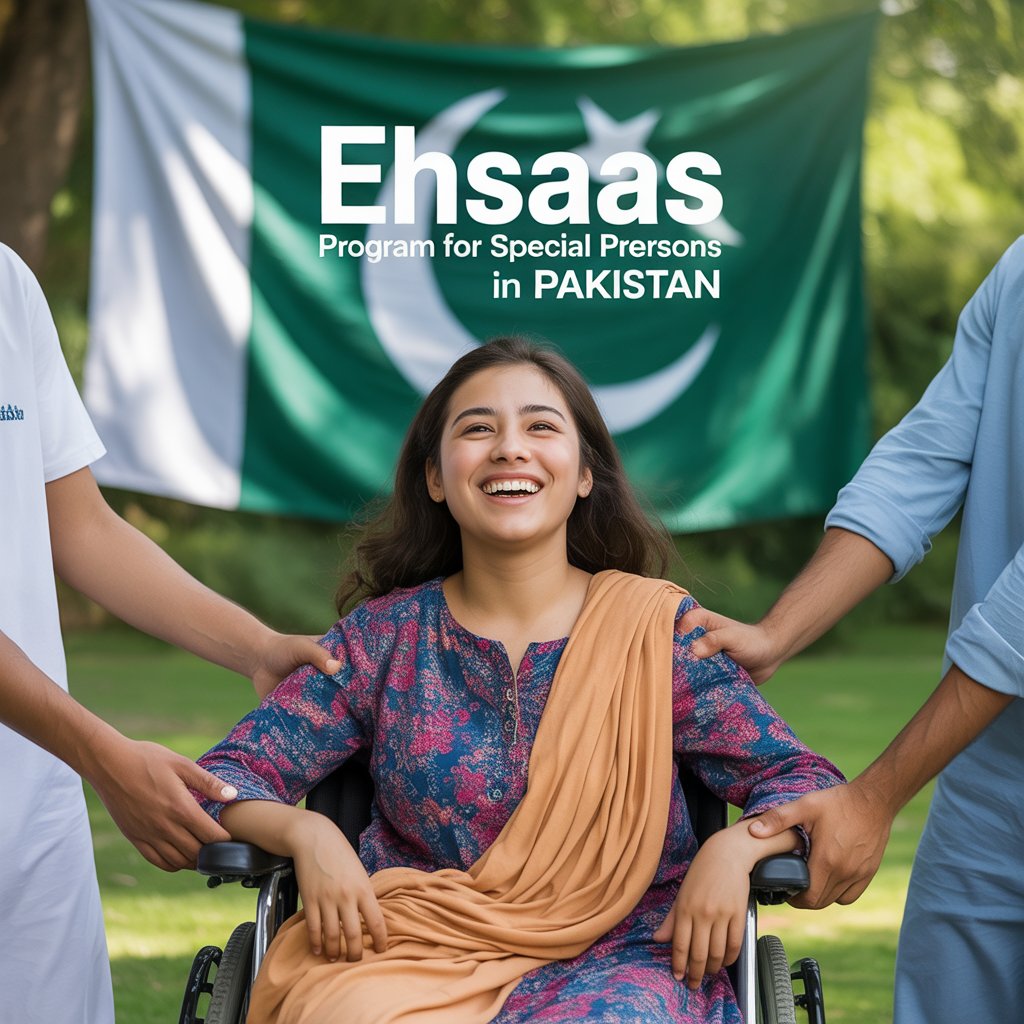
In a country where millions struggle to meet basic needs, persons with disabilities (PWDs)—also referred to as Special Persons—face an added layer of exclusion. The Ehsaas Program, Pakistan’s flagship anti-poverty and social protection initiative, has recognized this disparity and taken proactive steps to prioritize persons with disabilities through CNIC-based enrollment, targeted financial support, and inclusive programming.
From unconditional cash transfers under Kafalat, to education and nutrition support through conditional schemes like Taleemi Wazaif and Nashonuma, Ehsaas is transforming the way Pakistan addresses disability-inclusive development.
Introduction to the Ehsaas Program
Launched in March 2019, Ehsaas is Pakistan’s largest ever poverty alleviation platform, aiming to:
- Reduce inequality
- Invest in human capital
- Uplift vulnerable groups, including PWDs
With over 140 initiatives, Ehsaas encompasses cash transfers, education stipends, food security programs, and employment schemes—anchored in the principles of equity, transparency, and inclusion.
Ehsaas and Inclusion: A Rights-Based Approach
Ehsaas doesn’t treat disability as a side issue—it integrates it across multiple verticals. Aligned with:
- UN Convention on the Rights of Persons with Disabilities (UNCRPD)
- SDG 1 (No Poverty) and SDG 10 (Reduced Inequality)
- The National Policy on the Rights of Persons with Disabilities (2021)
Ehsaas ensures that persons with disabilities are prioritized, not sidelined.
Who Are Special Persons Under Ehsaas?
“Special Persons” under Ehsaas include individuals with:
- Physical disabilities
- Sensory impairments (vision or hearing)
- Intellectual or developmental conditions
- Psychosocial or mental health challenges
To qualify, individuals must have a CNIC issued by NADRA with a visible disability marker.
CNIC-Based Enrollment for Persons with Disabilities
Enrollment is streamlined using CNIC-based identification. Steps include:
- Disability certification from a medical board
- Updating CNIC at NADRA with disability status
- Automatic integration with NSER (National Socio-Economic Registry)
- Prioritization during Ehsaas cash transfer targeting
This system removes the need for re-verification and accelerates benefit delivery.
Conditional and Unconditional Cash Transfers for PWDs
PWDs can benefit from:
- Ehsaas Kafalat: Unconditional quarterly cash transfers
- Ehsaas Taleemi Wazaif: Education stipends for school-going children with disabilities
- Ehsaas Nashonuma: Conditional nutrition support for undernourished children and mothers with disabilities
- Ehsaas Emergency Cash: Support during crises or disasters (e.g., COVID-19)
Ehsaas Kafalat for Special Persons
Under Kafalat:
- Special Persons are flagged for immediate eligibility
- They receive Rs. 8,500 quarterly (subject to policy updates)
- Payments are made via:
- Bank ATMs
- Retailers (HBL Connect, Alfalah agents)
- Mobile wallets
- For those with severe mobility impairments, caretaker registration is available
Disability Prioritization in NSER (Dynamic Registry)
Ehsaas uses a data-driven approach via the NSER, which:
- Scores households on poverty and vulnerability
- Flags households with disabled members for special consideration
- Enables proactive outreach in under-covered regions
Special Benefits for Women and Children with Disabilities
Women and children face compounded barriers, hence:
- Women with disabilities receive tailored access support
- Girls enrolled in schools are given higher Taleemi Wazaif stipends
- Single mothers or widows with disabilities are prioritized for both Kafalat and Nashonuma
Ehsaas Taleemi Wazaif for PWD Children
This scheme offers:
- Conditional cash transfers to families of enrolled children
- Special support for children with disabilities, including:
- Higher education stipends
- Adaptive learning materials
- Monitoring of attendance and progress
Ehsaas Nashonuma for Nutrition Support
This program targets:
- Malnourished children under five
- Pregnant and lactating women, including those with disabilities
Nutrition kits, awareness sessions, and monthly support (Rs. 2,000–2,500) are provided, especially in remote and underserved areas.
Digital Access and Ehsaas One Window Portal
Ehsaas launched the One Window Digital Portal to:
- Simplify registration
- Allow online application tracking
- Provide information in easy-to-read formats
Disability-accessible features include:
- Screen-reader compatibility
- High-contrast visuals
- Simple language guides
Alternate Biometric Verification for Special Persons
Recognizing that many PWDs have challenges with fingerprint scanning, Ehsaas offers:
- Biometric exceptions through NADRA protocols
- Use of alternate verification (e.g., face recognition, caretaker CNIC)
- Application via field offices or mobile units for those unable to travel
Use of RAAST and Mobile Wallets for Transfers
Ehsaas ensures:
- Secure and fast transfers using Pakistan’s RAAST payment system
- Mobile wallet support via Easypaisa, JazzCash, and UPaisa
- Training for beneficiaries on how to access funds safely
Ehsaas Emergency Cash and Disability Response
During COVID-19, Ehsaas prioritized PWDs for:
- Emergency cash transfers (Rs. 12,000–Rs. 14,000)
- Doorstep delivery for immobile persons
- Simplified e-KYC processes via SMS and CNIC scans
Helplines and Complaint Mechanisms for PWDs
To address issues in real-time:
- Toll-free Ehsaas Helpline (8171)
- Online complaint submission via ehsaas.gov.pk
- District facilitation offices and mobile help vans for rural and disabled users
Partnerships with DPOs and Civil Society
Ehsaas collaborates with:
- NOWPDP, Milestone, and other disability rights organizations
- NGOs and field facilitators for registration drives
- Community leaders to spread awareness in tribal and conflict zones
Field Centers and Facilitation Desks for PWDs
Special provisions at Ehsaas field centers include:
- Wheelchair ramps and seated service counters
- Dedicated queues for persons with disabilities
- Use of sign language interpreters in high-traffic districts
Impact of Ehsaas on Economic Empowerment of PWDs
Ehsaas has enabled thousands of PWDs to:
- Purchase medication and assistive devices
- Support education for their children
- Reduce dependency on family or begging
- Feel recognized and valued as citizens
Integration with National Disability Frameworks
Ehsaas aligns with:
- UNCRPD Article 28 (Right to social protection)
- Pakistan’s National Disability Policy (2021)
- National programs like:
- Sehat Cards
- BISP
- Digital Pakistan
Challenges Faced by Special Persons in Accessing Ehsaas
Common barriers include:
- Low digital literacy among rural PWDs
- Lack of awareness about benefits and processes
- Delays in disability certification
- Connectivity issues in remote areas
Innovations and Future Upgrades in Ehsaas
Planned improvements:
- AI-based targeting of unregistered PWDs
- Multilingual mobile apps with voice interface
- Integration with national disability registry for cross-program support
- Real-time performance dashboards disaggregated by disability
Ehsaas for Transgender Persons with Disabilities
Special Persons who also identify as transgender face dual exclusion. Ehsaas has:
- Included them in emergency and regular disbursement lists
- Supported collaboration with trans rights organizations
- Offered tailored outreach strategies for this vulnerable group
Success Stories of Beneficiaries with Disabilities
Sadia, a visually impaired teacher in Mardan, was excluded from the workforce after her school shut down. Through Ehsaas Kafalat and Taleemi Wazaif, she now supports her household and tutors local children from home—showing how inclusive cash transfers restore dignity and purpose.
Role of NADRA and Data Verification
NADRA plays a crucial role in:
- Tagging CNICs with disability status
- Linking biometric exceptions to e-KYC
- Providing real-time data for targeted delivery of benefits
Monitoring and Accountability of Inclusion Metrics
Ehsaas tracks:
- Number of PWDs in each district receiving support
- Complaint resolution rates
- Gender and age disaggregation
- Periodic third-party audits
Results are published on Ehsaas dashboards for public access.
Conclusion: Toward a More Inclusive Pakistan with Ehsaas
The Ehsaas Program has transformed the concept of disability support in Pakistan—from charity to rights, from exclusion to empowerment. By leveraging data, innovation, and compassion, it ensures that no Special Person is left behind. The road ahead demands deeper outreach, smarter systems, and a continuous commitment to dignity and inclusion.
Ehsaas proves that when the state listens, society heals.
FAQs
How can Special Persons register for Ehsaas?
By ensuring their CNIC reflects disability status and participating in the NSER survey.
Is biometric verification mandatory for all PWDs?
No. Alternative verification methods are available for those unable to use fingerprints.
What schemes under Ehsaas benefit persons with disabilities?
Kafalat, Taleemi Wazaif, Nashonuma, and Emergency Cash—all prioritize PWDs.
Can PWDs nominate a caretaker to collect their stipend?
Yes, with proper documentation and verification.
Are education benefits available for disabled children?
Yes. Special Persons’ children enrolled in school receive conditional stipends.
